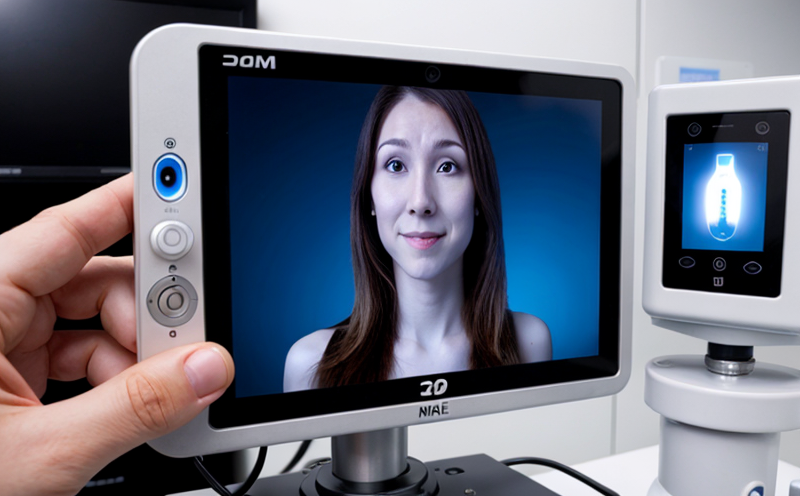Battery Longevity Testing of Implantable Devices
Implantable medical devices represent a vital segment in healthcare technology. These devices include pacemakers, implantable cardioverter-defibrillators (ICDs), cochlear implants, spinal cord stimulators, and many others. The longevity of the battery powering these devices is crucial for patient safety and well-being.
The primary function of a battery in an implantable medical device is to provide power continuously without interruption. Given that these devices are often used over long periods, ensuring the reliability and longevity of their batteries is paramount. This service focuses on comprehensively testing the battery life of implantable medical devices to ensure they meet regulatory standards and perform reliably under expected usage conditions.
Our testing approach involves simulating real-world operating environments using advanced equipment that replicates physiological conditions, such as body temperature and fluid exposure. We use international standards like ISO 10993-18:2021 to guide our protocols for biocompatibility and electrical safety.
The process begins with thorough specimen preparation, which includes cleaning the devices and ensuring they are free from any contaminants that could affect test results. The testing apparatus is calibrated meticulously to ensure accuracy. We then subject the batteries to various stress conditions, including high temperatures, low temperatures, humidity, and simulated body fluid exposure.
During the test, we monitor voltage levels, current consumption, and battery capacity over time. This data helps us determine when the battery reaches its end of life, providing insights into potential improvements in design or manufacturing processes. Our reports include detailed analyses that help our clients understand both the strengths and weaknesses of their devices.
By conducting this testing, we ensure that implantable medical devices can function safely and effectively for extended periods, thereby enhancing patient care and compliance with regulatory requirements.
Quality and Reliability Assurance
The longevity of a battery is critical in ensuring the reliability and safety of implantable devices. Our testing process not only verifies that batteries meet regulatory requirements but also ensures they perform reliably under expected usage conditions. This service plays a crucial role in enhancing patient safety by identifying potential issues early on, thus preventing failures that could have serious health implications.
By conducting thorough battery longevity tests, we provide medical device manufacturers with valuable insights into the performance of their products. These tests help identify areas for improvement and optimization, leading to more durable and effective devices. Additionally, our testing ensures compliance with relevant standards and regulations, which is essential for market entry and ongoing product support.
Our commitment to quality and reliability extends beyond just testing; it encompasses all aspects of the development process, from initial design through final production. By incorporating these tests into their R&D strategies, manufacturers can ensure that they are delivering products that meet the highest standards of safety and effectiveness.
Competitive Advantage and Market Impact
The longevity testing of implantable medical device batteries is not just a regulatory requirement but also a strategic advantage for manufacturers. By ensuring that their products perform reliably over long periods, companies can build trust with healthcare providers and patients alike. This trust translates into higher market acceptance, better patient outcomes, and enhanced brand reputation.
Our testing service provides a competitive edge by offering detailed insights into battery performance that go beyond basic compliance checks. These insights help manufacturers optimize their products for longevity while also identifying opportunities to innovate further. For instance, understanding how batteries behave under various stress conditions allows companies to design more efficient and robust devices.
Moreover, our testing service supports ongoing product support by helping manufacturers address any issues that may arise during the device’s lifecycle. This proactive approach ensures that products remain reliable throughout their useful life, thereby reducing the risk of field failures and associated costs.
In summary, by investing in battery longevity testing, companies can enhance their competitive position in the market while contributing to better healthcare outcomes for patients worldwide.
Why Choose This Test
- Comprehensive Compliance: Ensures adherence to international standards like ISO 10993-18:2021 for biocompatibility and electrical safety.
- Real-world Simulation: Utilizes advanced equipment to simulate the exact physiological conditions under which devices will operate, ensuring realistic test results.
- Data-Driven Insights: Provides detailed reports that highlight both strengths and weaknesses of battery performance, aiding in continuous improvement.
- Regulatory Compliance: Helps manufacturers meet stringent regulatory requirements for medical device safety and efficacy.





